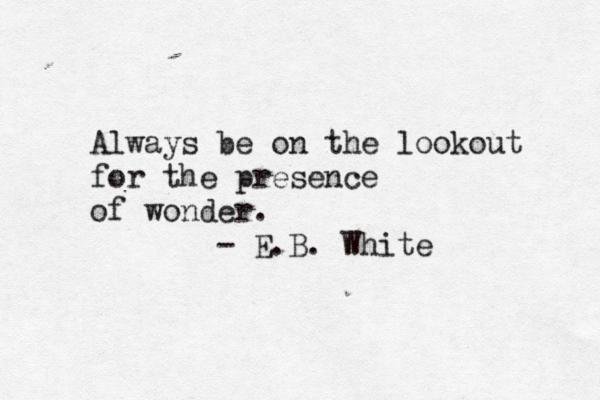- How To Tackle Jealousy In Creative Writing
- Common Submission Mistakes
- How To Stop Your Blog Becoming Boring
- The One Thing Every Successful Writer Has In Common
- How To Make Yourself Aware Of Publishing Scams
- Why Almost ALL Writers Make These Grammar Mistakes At Some Point
- 5 Tips For Authors On How To Deal With Rejection
- Top Mistakes to Avoid When Writing a Novel
- How to Avoid Common New Writer Mistakes
- 10 Mistakes New Fiction Writers Make
E.B. White On How to Write For Children

Share, Pin or Retweet If You Love Writing!
In a 1969 interview, included in the altogether unputdownable The Paris Review Interviews, vol. IV (public library) — which also features wonderfully wide-ranging conversations with Haruki Murakami, Maya Angelou, Ezra Pound, Marilynne Robinson, William Styron and more — White turns his formidable amalgam of wit and wisdom to our culture’s limiting misconceptions about storytelling “for children.”
When the interviewer asks whether there is “any shifting of gears” in writing children’s books, as opposed to the grownup nonfiction for which he is best known, White responds with the rare combination of conviction and nuance:
"Anybody who shifts gears when he writes for children is likely to wind up stripping his gears. But I don’t want to evade your question. There is a difference between writing for children and for adults. I am lucky, though, as I seldom seem to have my audience in mind when I am at work. It is as though they didn’t exist.
Echoing Ursula Nordstrom — the visionary editor and patron saint of childhood who brought to life not only Charlotte’s Web but also such classics as Goodnight Moon, Where the Wild Things Are, and The Giving Tree, and who famously insisted that children never want a blunt creative edge — White adds:
"Anyone who writes down to children is simply wasting his time. You have to write up, not down. Children are demanding. They are the most attentive, curious, eager, observant, sensitive, quick, and generally congenial readers on earth. They accept, almost without question, anything you present them with, as long as it is presented honestly, fearlessly, and clearly. I handed them, against the advice of experts, a mouse-boy, and they accepted it without a quiver. In Charlotte’s Web, I gave them a literate spider, and they took that.Long before psychologists knew that language is central to how human imagination evolves. "
Are you writing a children's book, or any kind of book for that matter and having trouble staying on schedule. If this is the case, then you might want to stay on track using follow the advice in the Get It Done Writer's Toolkit CLICK HERE! which is an online course that teaches you how to stay organized, stay on schedule, write and edit your projects with expediency.
White is especially adamant about the blunting of language:
"Some writers for children deliberately avoid using words they think a child doesn’t know. This emasculates the prose and, I suspect, bores the reader. Children are game for anything. I throw them hard words, and they backhand them over the net. They love words that give them a hard time, provided they are in a context that absorbs their attention. I’m lucky again: my own vocabulary is small, compared to most writers, and I tend to use the short words. So it’s no problem for me to write for children. We have a lot in common.
Like C.S. Lewis, who contemplated what writing for children reveals about the key to authenticity in all writing, White extrapolates the writer’s responsibility to all audiences.
A writer should concern himself with whatever absorbs his fancy, stirs his heart, and unlimbers his typewriter… A writer has the duty to be good, not lousy; true, not false; lively, not dull; accurate, not full of error. He should tend to lift people up, not lower them down. Writers do not merely reflect and interpret life, they inform and shape life.
If you are thinking of self-publishing your first children's book, then Writer's Life has a webinar that may help you in your endeavours called How to Get Published, Sell Books & Attract Tens of Thousands of Readers by Selling Your Content on Amazon’s Kindle CLICK HERE! Description this is a webinar that teaches writers how to self publish online, self publish to Amazon's Kindle Direct Publishing Platform and market, promote and sell their written material online.
This annotated excerpt from the Paris Review Interviews, vo. IV appeared as a post by Maria Popova under the title E.B.White on How to Write for Children and the Writer's Responsibility to All Readers at http://www.brainpickings.org/2015/02/26/e-b-white-writing-for-children/

























